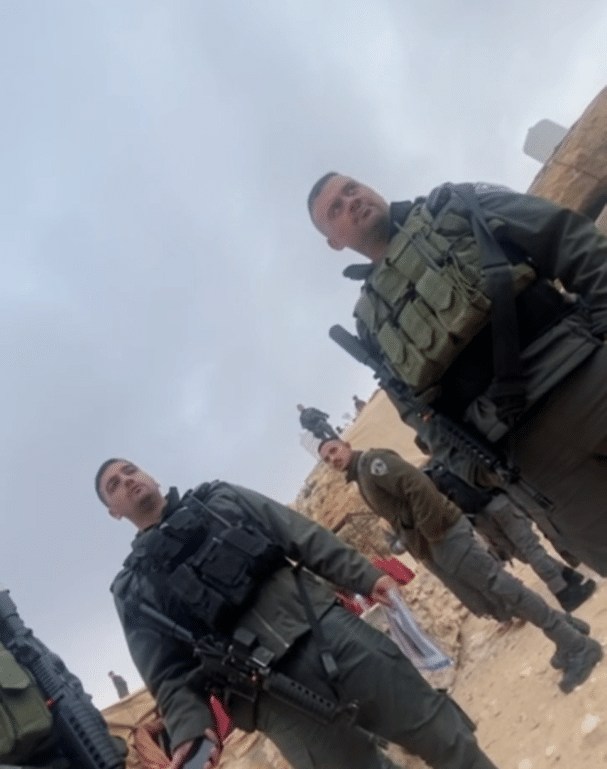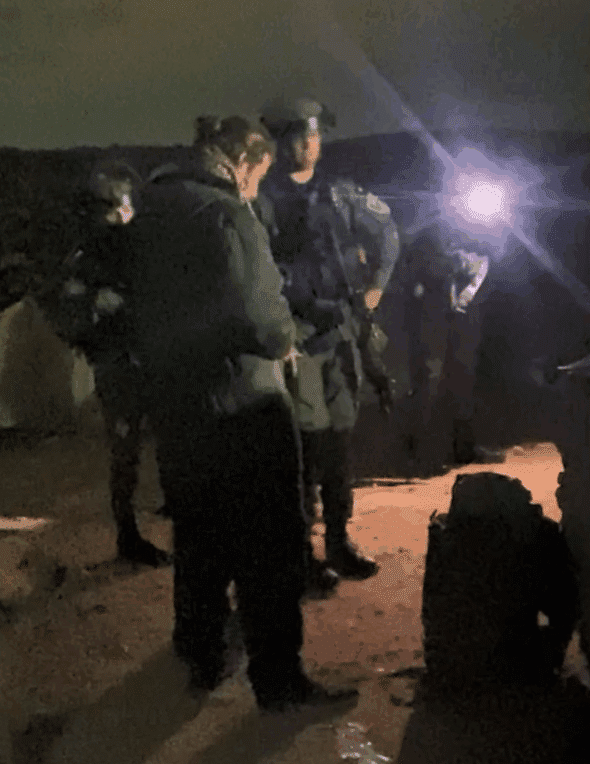-
FOR IMMEDIATE RELEASE: Attempts to Displace the Abu Hamam Family Continue; Two US Solidarity Activists Arrested
For more details: Mia +972-53-809-7706 December 12, al-Mughayyer – Israeli soldiers and border police officers raided the Abu Hamam family home in al-Mughayyer at 14:30, presenting a month-long closed military zone order. The border police officers informed the residents that solidarity activists are forbidden from staying there as they “cause trouble.” Two US nationals were […]
-
FOR IMMEDIATE RELEASE: US and Australian Citizens Abducted by Army as Attacks on Palestinians and Activists in al-Mughayyer Continue
For more details and footage: Mia +972-53-809-7706 Thursday, December 11, 2025 Al Mughayyer, north of Ramallah – For the fourth consecutive day of Israeli assaults, a gang of armed Israeli settlers raided the Abu Hamam family home yesterday. Later at night, the Israeli army abducted a US and an Australian citizens. At around 18:45, settlers […]
-
FOR IMMEDIATE RELEASE: Israeli Settlers Attack and Injure Palestinian Family and Solidarity Activists
**GRAPHIC CONTENT WARNING** Sunday, December 7, 2025 For more details: Mia +972-53-809-7706 Eight Israeli settlers, masked and armed with clubs, brutally attacked the Abu Hamam home in the village of al-Mughayyer, east of Ramallah, tonight. The settlers injured a 13-year-old boy, Riziq Abu Naim, and a 59-year-old woman, Fadda Abu Naim (Umm Hamam), as well […]
Action Alert An Nabi Saleh Apartheid Wall Arrests BDS Bethlehem Bil'in Cast Lead Demonstration Denial of Entry Ethnic Cleansing Farmers Gaza Global Actions Hebron House Demolition International law Israeli Army Jerusalem Live Ammunition Nablus Ni'lin Prisoner Ramallah Rubber-coated steel bullets Settlement Settlers Settler violence Tear-Gas Canister Video



